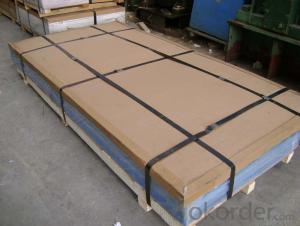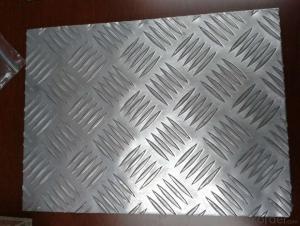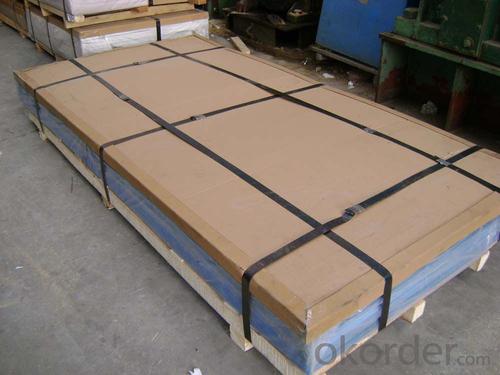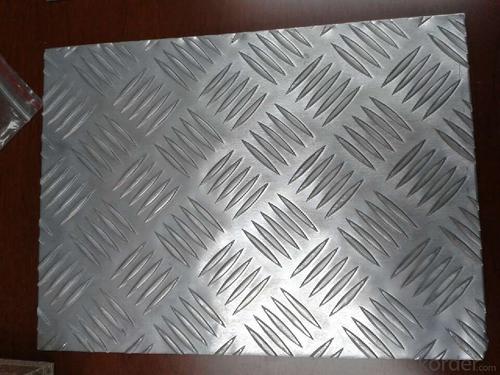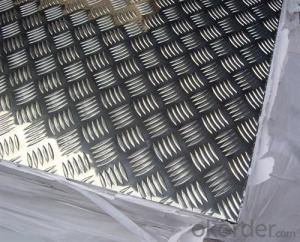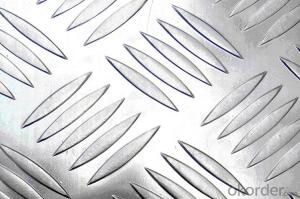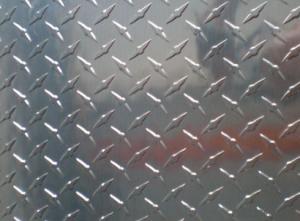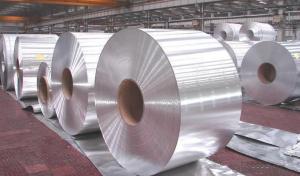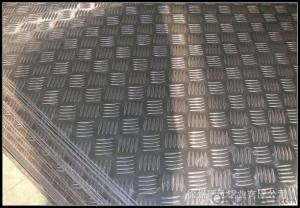Colorful Coated Aluminum Coil - Aluminum Treat 5 Bar Plate 1100 H14, 35mm
- Loading Port:
- Shanghai
- Payment Terms:
- TT OR LC
- Min Order Qty:
- 2 m.t.
- Supply Capability:
- 10000 m.t./month
OKorder Service Pledge
OKorder Financial Service
You Might Also Like
1.Structure of Aluminum Treat 5 BAR Plate 1100 H14, 35MM :
Aluminum Treat 5 BAR Plate 1100 H14, 35MM is widely used for decorative purposes in construction, packing and appliance. Aluminum Treat 5 BAR Plate 1100 H14, 35MM is also very commonly used for anti-shippery purposes in vehicles and pulic places.
2.Main Features of the Aluminum Treat 5 BAR Plate 1100 H14, 35MM :
• Beautiful parten
• Good anti-slippery quanlity
• High manufacturing accuracy
• High strength of extension and yield
• Well packaged
• No marks, no scratch, no excessive oil
3. Aluminum Treat 5 BAR Plate 1100 H14, 35MM
Alloy: 1050, 1060, 1070, 1100, 3003, 3004, 3005, 3105, 5052, 5083, 5754, 8011, 8006
Temper: H14, H16, H18, H22, H24, H26, H32, O/F
Thickness: 0.2mm-20mm
Width: 10mm-1500mm
4. Aluminum Treat 5 BAR Plate 1100 H14, 35MM
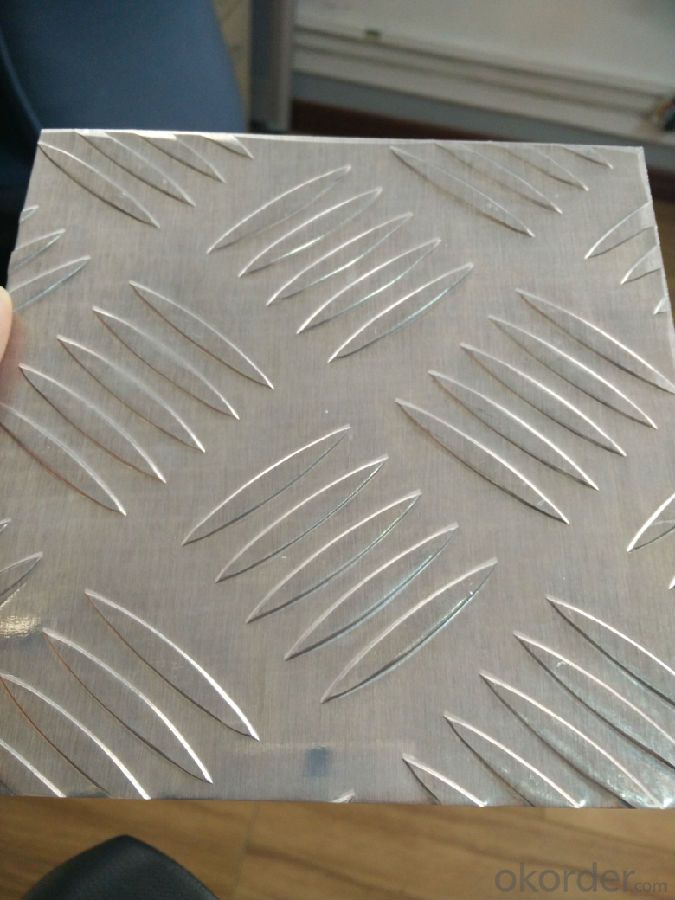
Packing
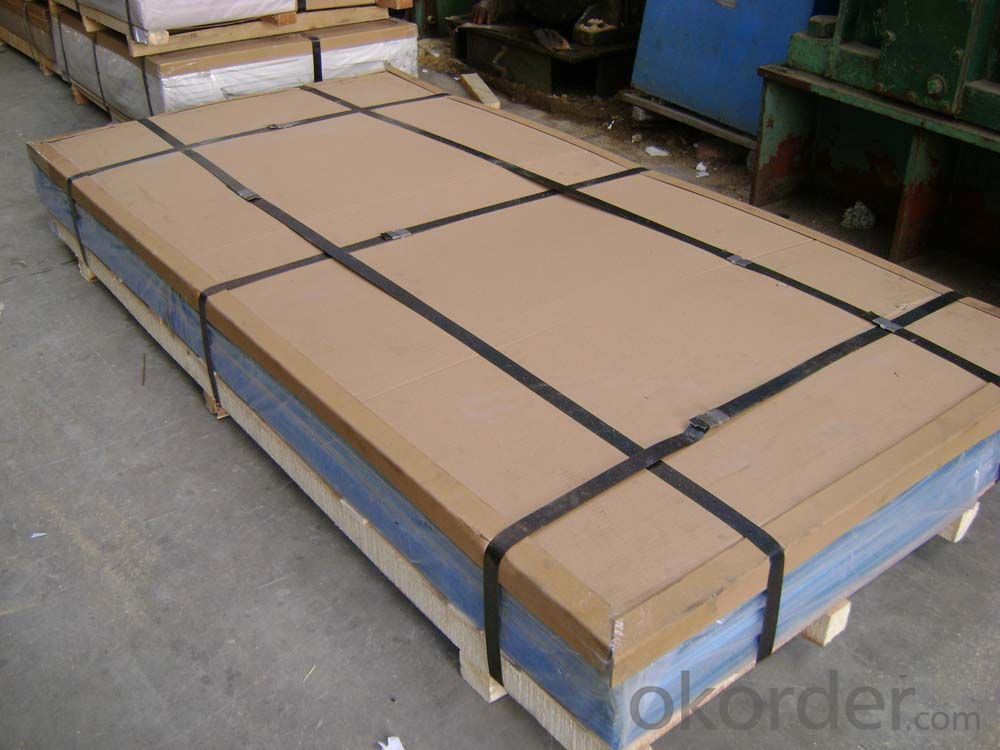
5.FAQ
We have organized several common questions for our clients,may help you sincerely:
① How about your company?
A world class manufacturer & supplier of aluminum coil and alloy blanks. Aluminum production base is comprised of 18 aluminum annealers, 10 coil and foil mills, 4 continuous production lines, 2 hot rolling production line and 3 prepainted lines.
Export 5000 tons per month to Asia, America and Middle East. Always do the best for our clients.
②Can you guarantee the quality of the products?
We are responsible for the quality of materials to get a long-term cooperation with clients in a reasonable period of time and we are glad to arrange and coordinate any third party inspection for you.
③What is the delivery time after purchase?
35 day after receiving client’s deposit or correct LC
- Q: Are aluminum coils suitable for architectural louvers?
- Indeed, architectural louvers can be constructed using aluminum coils as they possess remarkable corrosion resistance, a lightweight composition, and a commendable strength-to-weight ratio. The malleability and manipulability of aluminum coils grant them the ability to be effortlessly shaped and fabricated into diverse forms and dimensions, thereby rendering them exceptionally suitable for fashioning aesthetically appealing and practical louvers. Moreover, the robustness of aluminum guarantees that the louvers will endure severe weather conditions and retain their structural integrity for an extended period. In conclusion, aluminum coils serve as a dependable and adaptable material choice for architectural louvers.
- Q: How do aluminum coils contribute to energy-efficient lighting installations?
- Aluminum coils play a significant role in enhancing the energy efficiency of lighting installations. Firstly, aluminum is a highly conductive material that efficiently transfers heat away from the lighting system. This prevents the accumulation of heat, which can diminish the performance and lifespan of the lighting fixtures. By dissipating heat effectively, aluminum coils help maintain optimal operating temperatures, ensuring the lights operate at their highest efficiency. Furthermore, aluminum coils are lightweight, making them easier to handle and install. This reduces the overall weight of the lighting fixtures, making them more convenient to mount and manipulate during installation. The reduced weight also translates into lower energy consumption during transportation and installation, ultimately contributing to energy efficiency in the long run. In addition, aluminum coils are highly durable and resistant to corrosion, which is crucial for lighting installations exposed to various environmental conditions. This durability minimizes the need for frequent replacements or repairs, reducing energy consumption associated with maintenance. Moreover, aluminum is a recyclable material, meaning that the coils can be easily reused or repurposed at the end of their life cycle. Recycling aluminum requires significantly less energy compared to producing new aluminum, resulting in a reduced carbon footprint and lower energy consumption overall. Overall, aluminum coils offer numerous benefits in terms of energy efficiency for lighting installations. Their efficient heat dissipation, lightweight nature, durability, and recyclability contribute to optimized performance, reduced energy consumption, and a more sustainable lighting solution.
- Q: The temperature of the water drops from 93.0°C to 78.0°C. What quantity of heat energy did the piece of aluminum absorb?
- The specific heat of Aluminum is 0.215 cal/g-°C. The calories absorbed (q) would be q = m * c * (T2 -T1) = 22.0 g * 0.215 cal/g-°C * (78.0 °C - 0.3 °C) If you have a different value for the Specific heat of Aluminum, use it in the formula for your calculations. If you knew the mass of the water, you could check your calculations because the heat gained by the Al would be equal to the heat lost by the water, using q = m * c * (T2 -T1), where m is the mass of the water, c = 1.00 calorie/gram °C, T2 = 78.0 °C and T1 = 93.0 °C. The sign of q will be negative.
- Q: What is the typical thickness of aluminum coils?
- The typical thickness of aluminum coils can vary depending on their intended use and application. However, in general, aluminum coils are available in a range of thicknesses, typically ranging from 0.006 inches (0.15 mm) to 0.25 inches (6.35 mm). The specific thickness required for a particular project or industry will depend on factors such as the desired strength, flexibility, and weight of the aluminum coils.
- Q: who invented aluminum and or aluminum foil?
- Well, God invented aluminum, as it is an ELEMENT. The other, I don't know.
- Q: Can aluminum coils be used in electrical busbars?
- Yes, aluminum coils can be used in electrical busbars. Aluminum offers good conductivity, is lightweight, and cost-effective, making it suitable for use in busbars. However, proper insulation and connection techniques must be employed to address the higher thermal expansion and potential corrosion issues associated with aluminum.
- Q: Can aluminum coils be used in solar energy systems?
- Certainly, solar energy systems can utilize aluminum coils. Aluminum is widely employed in the fabrication of solar panels and solar energy systems owing to its remarkable qualities. Lightweight, durable, and possessing excellent thermal conductivity, aluminum coils are perfect for dispersing heat away from solar cells. Moreover, aluminum's resistance to corrosion is essential for outdoor deployments, where solar panels face diverse weather conditions. By incorporating aluminum coils into solar energy systems, the efficiency and lifespan of the panels are enhanced, thus augmenting the efficacy and sustainability of solar energy generation.
- Q: what is aluminium toxic amount on a human's general physiological system? and what is the usual amount aluminium injested?thankyou
- Go okorder /
- Q: This question asks for a comparison of the benefits and drawbacks associated with the use of aluminum coil in various applications.
- <p>The advantages of using aluminum coil include its lightweight nature, which reduces transportation costs and enhances energy efficiency. It also has excellent thermal conductivity, making it ideal for heat exchangers and cooking utensils. Aluminum coil is corrosion-resistant, which extends its lifespan and reduces maintenance. It is also recyclable, contributing to sustainability. Disadvantages include lower strength compared to steel, which may limit its use in heavy-duty applications. It also has a higher cost than some other metals, which can affect its competitiveness in certain markets. Additionally, aluminum is a good conductor of electricity, which can be a disadvantage in applications where electrical insulation is required.</p>
- Q: Describe the different methods used to produce aluminum coils.
- <p>Aluminum coil is produced through several methods, primarily involving the process of rolling. The main methods include: 1) Hot rolling, where aluminum slabs are heated and rolled into coils at high temperatures. 2) Cold rolling, which involves rolling aluminum at room temperature to achieve thinner gauges with higher precision. 3) Continuous casting and rolling, a process where aluminum is cast and rolled in one continuous operation, optimizing production efficiency. 4) Twin-roll casting, a method where molten aluminum is cast directly between two counter-rotating rolls, forming a thin strip that can be coiled immediately. Each method has its advantages and is chosen based on the desired coil properties, thickness, and application.</p>
Send your message to us
Colorful Coated Aluminum Coil - Aluminum Treat 5 Bar Plate 1100 H14, 35mm
- Loading Port:
- Shanghai
- Payment Terms:
- TT OR LC
- Min Order Qty:
- 2 m.t.
- Supply Capability:
- 10000 m.t./month
OKorder Service Pledge
OKorder Financial Service
Similar products
Hot products
Hot Searches
Related keywords
